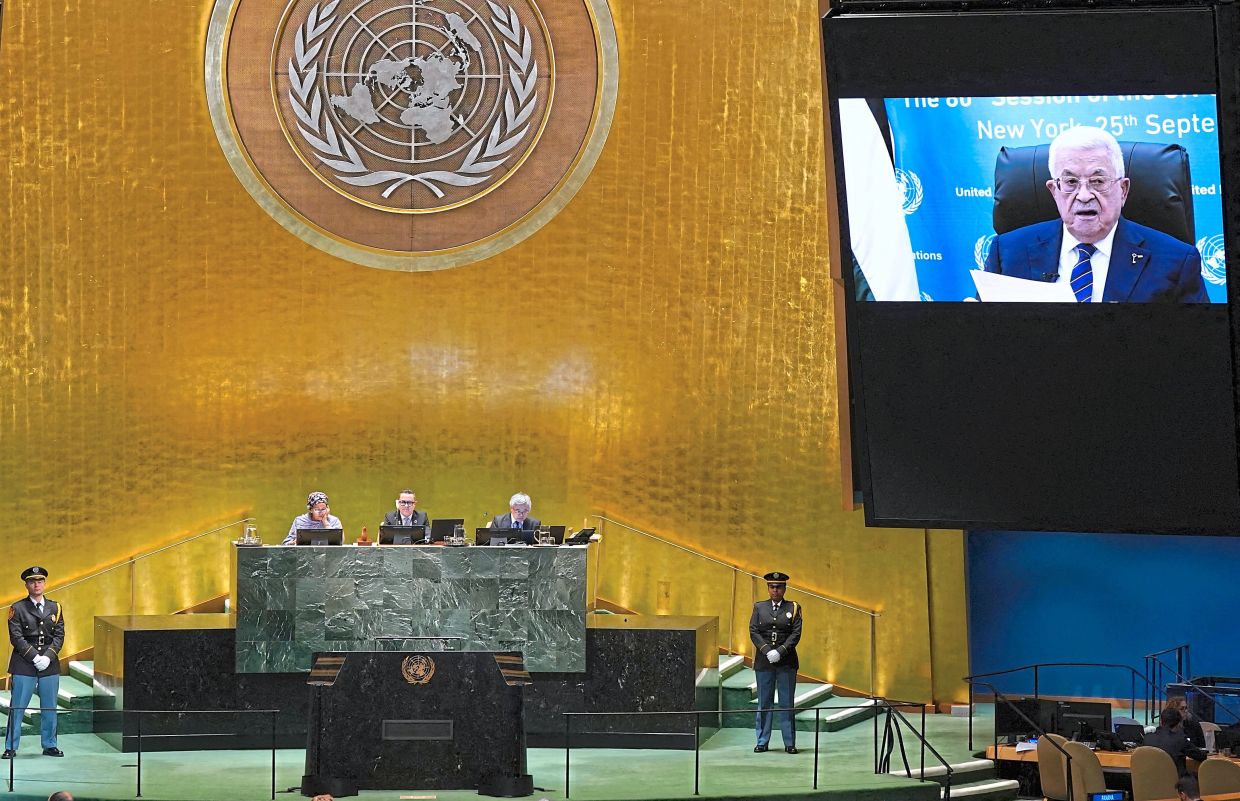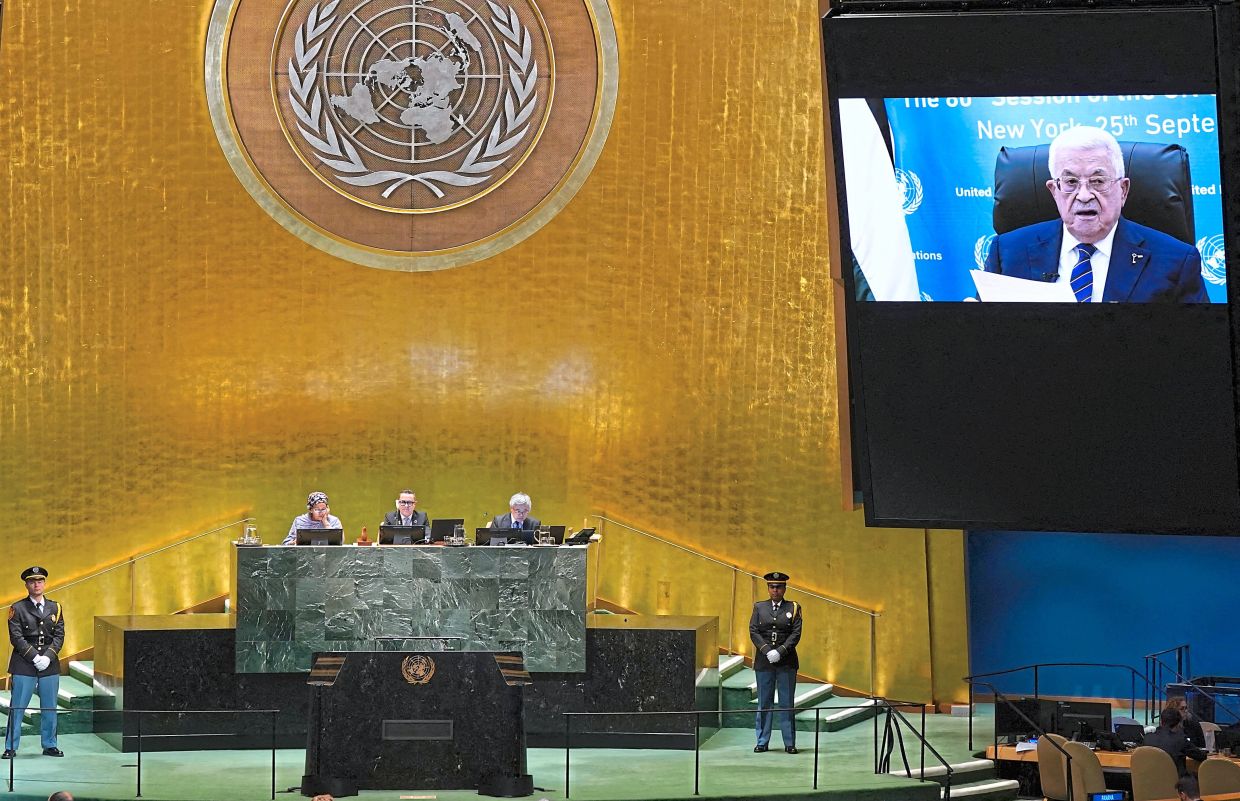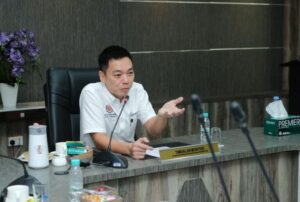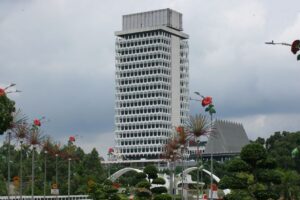
EVERY time the United Nations General Assembly convenes in September in New York City, the world is meant to gather in one place to reaffirm the spirit of multilateralism. But the atmosphere this year could not be further removed from that vision.
United States President Donald Trump returned to the podium with a speech that was openly hostile to the UN system, while Washington’s refusal to issue visas for the Palestinian delegation underscored how the Gaza war has been politicised in ways that threatens the credibility of the UN as a forum for all. It is time to ask the previously unthinkable: Should the UN remain headquartered in New York?
When the UN Charter was signed in San Francisco in 1945 and the headquarters was established in New York a few years later, the US was the undisputed leader of the free world.
Hosting the UN was symbolic of America’s commitment to a rules-based order, for which it was willing to bear the logistical weight of hosting global diplomacy. But that era has long passed.
Today, US politics is increasingly sceptical, if not outright hostile, toward global institutions. The de facto Palestine visa ban illustrates how a host country’s domestic politics can distort access to a body that is meant to represent all.
Calls to move the UNGA to Geneva quickly gained traction, not least because Asia, South America, Africa and Europe now bear much more of the responsibility for keeping multilateralism alive. For now, UN officials can deny that permanent relocation is on the table, dismissing the chatter as rumour. But as long as it remains relevant, where the UN sits sends a signal about whose interests matter most.
The visa debacle is just the latest symptom of a deeper malaise. During the Covid-19 pandemic, the US levelled veiled accusations at the World Health Organisation chief for getting too chummy with its main adversary China.
With the Gaza war, and six related Security Council resolution vetoes later, that thin veil was completely lifted for all to see.
Keeping the UN in New York now risks turning its headquarters into a relic of past American aspirations, but where some voices remain privileged, others silenced and most go unheard.
In this context, Indonesian president Prabowo Subianto’s maiden address to the General Assembly, after a decade without top billing from Indonesia, was striking. His declaration that “might is not right” and that humanity should see itself as a global “family” drew a round of applause, not just because he emulated Sukarno’s fiery 1960 speech at the UN during the Cold War, a year before the Non-Aligned Movement came into existence. Lofty as they sound, Prabowo’s words matter at a time when global cooperation is faltering.
They offer a reminder that smaller states and middle powers can, and must, defend the principle of equality among nations. Perhaps Jakarta could one day host one of the UN’s central institutions, bringing them closer to a region where multilateralism is still valued.
Complicated funding model
Prabowo’s pledge to deploy 20,000 Indonesian troops for UN peacekeeping missions, while a noble vision for a largely idle military force, is complicated by the reality of the UN’s funding model.
Under UN rules, troop-contributing states must first supply the troops and equipment, then submit verification reports before the funds are reimbursed. This system assumes member states pay their assessments on time, but the UN currently faces chronic liquidity crises because major donors, including the US, often delay payments or withhold them altogether.
This is yet another thing we have Trump to thank for. It also speaks to the reason why broader reform is urgent: The UN cannot continue to depend so heavily on a handful of donors.
To save itself from paralysis, it should explore new sources and creative ways of funding. There is a case to be made for tapping into global wealth where it actually resides: In multinational corporations and ultra-rich individuals.
Some billionaires now control fortunes larger than the gross domestic products of many Global South states. And yet, they still escape the scrutiny of the world’s governing body.
While controversial, it could be a first step toward taxing the ultra-rich in service of global goods. In any case, multilateralism must break free of being hostage to state largesse and find a new centre of gravity if it is to survive.
Moving the UN headquarters admittedly will not be easy. It would require renegotiating host country agreements, finding a politically neutral site and building infrastructure on a scale that only a few cities could handle. But as Trump‘s defiant speech and the Palestinian visa debacle reminded the world, the stakes are too high to leave things unattended.
Geneva already hosts much of the UN’s human rights apparatus, alongside the WHO and the International Labor Organisation. Nairobi and Bangkok also serve as regional UN hubs, offering proof that meaningful multilateral work already thrives outside New York.
A fractured world needs neutral ground, accessible to all, unburdened by the politics of a single nation-state. In the end, the question is not whether New York can still host the UN, but whether it should.
The counterargument is that moving the headquarters could further fracture the institution or discourage major powers from showing up. One can even choose to believe Trumpism is temporary. But the opposite can also be true: A neutral venue could revive trust in a system many now dismiss as tilted. And if the idea is too legally fraught to be realised, then we can opt to just move the conferences and meetings. Relocating key assemblies may not solve every problem, but it would reaffirm that the UN belongs to all nations equally.
Prabowo is right; “we must stand for the strong and the weak”. But unless member states act on that conviction, and unless they are willing to reimagine where and how the UN works, the institution risks teetering into irrelevance. The world deserves better. — The Jakarta Post/ANN
Tramaditya Salim is managing editor at The Jakarta Post.






